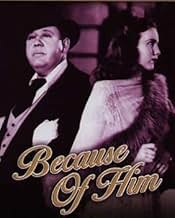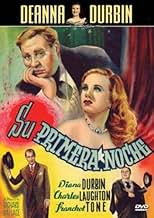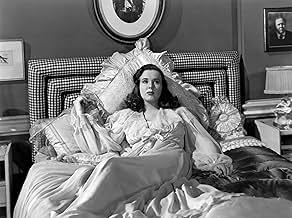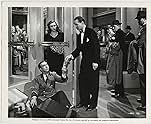VALUTAZIONE IMDb
6,6/10
461
LA TUA VALUTAZIONE
Aggiungi una trama nella tua linguaA young woman who wants to break into the theater schemes to become the protege of a famous Broadway star.A young woman who wants to break into the theater schemes to become the protege of a famous Broadway star.A young woman who wants to break into the theater schemes to become the protege of a famous Broadway star.
- Regia
- Sceneggiatura
- Star
- Premi
- 3 vittorie totali
Joan Shawlee
- Autograph Seeker
- (as Joan Fulton)
John Alban
- Party Guest
- (non citato nei titoli originali)
George Anderson
- Detective
- (non citato nei titoli originali)
Bobby Barber
- Stagehand
- (non citato nei titoli originali)
Brooks Benedict
- Theatre Patron
- (non citato nei titoli originali)
Helen Bennett
- Reporter
- (non citato nei titoli originali)
Edward Biby
- Hotel Guest
- (non citato nei titoli originali)
Gladys Blake
- Mabel
- (non citato nei titoli originali)
Barbara Brewster
- Elevator Passenger
- (non citato nei titoli originali)
Recensioni in evidenza
Deanna Durbin and Charles Laughton shine in this comedy that has hints of romance and mystery. The setting is a familiar one with many Durbin films - taking place around the stage, theater or a group of young folks putting on a play. And, as with most of those, Durbin has a few songs that are extemporaneous to the plot. It's a nice way to show her exceptional singing talent, without making a regular musical story. Even though some of her films with songs are grouped also as musicals -- besides those that truly fit that bill, most of them stand along as very good comedies
"Because of Him" has a funny plot and a story that really lets Laughton get into wonderful comedy. It's not of dialog and witticisms, but scenes with his very funny physical expressions. His John Sheridan reacts to the shenanigans of a ploy by Durbin's Kim Walker to break into the stage. This is a great film to watch this master actor in some superb hammy comedy. And, in most of this, Dubin plays the straight face or character with Laughton. But, she has her comical moments as well. One of the funniest is with Franchot Tone's Paul Taylor, toward the end as she tries to stick to him while he ties to get away from her. It's very funny in the apartment hallway with Durbin singing from inside his locked door, the neighbors all coming out to see what's going on, and then their carrying it into the elevator with other passengers. Donald Meek, Helen Broderick, and Stanley Ridges round out the supporting cast for comedy.
This isn't a comedy with rollicking laughter, but one of humorous drama and a caper that blows up into a full blown plot. It has obviously hammy scenarios, and an original and just very entertaining plot. The stars apparently had a lot of fun on the set, and this was another box office hit that kept Durbin on the top in Hollywood through the mid-1940s.
"Because of Him" has a funny plot and a story that really lets Laughton get into wonderful comedy. It's not of dialog and witticisms, but scenes with his very funny physical expressions. His John Sheridan reacts to the shenanigans of a ploy by Durbin's Kim Walker to break into the stage. This is a great film to watch this master actor in some superb hammy comedy. And, in most of this, Dubin plays the straight face or character with Laughton. But, she has her comical moments as well. One of the funniest is with Franchot Tone's Paul Taylor, toward the end as she tries to stick to him while he ties to get away from her. It's very funny in the apartment hallway with Durbin singing from inside his locked door, the neighbors all coming out to see what's going on, and then their carrying it into the elevator with other passengers. Donald Meek, Helen Broderick, and Stanley Ridges round out the supporting cast for comedy.
This isn't a comedy with rollicking laughter, but one of humorous drama and a caper that blows up into a full blown plot. It has obviously hammy scenarios, and an original and just very entertaining plot. The stars apparently had a lot of fun on the set, and this was another box office hit that kept Durbin on the top in Hollywood through the mid-1940s.
Deanna is such a sweet, old fashioned woman, she was about 23 in "Because of him". Deanna was 13 in her first appearance with Judy Garland in the short "Every Sunday" 1936, and that came out 10 years prior to "Because I know him" 1946. Deanna blossomed into a beautiful young woman in her 1940s films such as this one. And her voice is wonderful again here singing her lovely opera songs especially the tear-jerker "Danny boy".
The golden age had some beautiful operatic singing women, Janette McDonald in the 1930s and early 1940s, and Kathryn Grayson and Deanna Durban in the 1940s. All angels
Deanna had a deep admiration for John and wanted to star in his show so badly that she folded a letter that she typed herself about being invited to star in John's show, and asked him for his autograph with him only seeing the side of the paper without the letter showing. Since Deanna was waitressing and John was a customer at the restaurant she waitressed at, she was able to pull it off with John not discovering until later what she'd done. John did take it better than many characters of his sort in these types of films would take it. Generally, he took it well enough to remain calm and sympathetic towards Deanna and to keep her scheming move quiet and between only the two of them. But he didn't take it well enough to actually grant her wish to star in his show, and bluntly advised her to go back to her home town. Then Deanna, well at least her friends and family, did not keep the next plot point quiet. They publicised in the newspaper that she attempted suicide due to John's rejecting her for his show.
John's reaction to that, like with the autograph/letter scheme, was lighter than one would've expected, and he then really developed a soft spot for her innocence and determination. After that came Deanna's beautiful "Danny boy", and Deanna and John were not the only ones without dry eyes. I have a sentimental side to Golden age music, it's simply got a sweetness and charm to it that no modern music can match. Deanna Durban, Kathryn Grayson, Janette McDonald, Judy Garland, Nelson Eddie, Allen Jones, Dick Powell's singing, Ginger Rogers, Jean Harlow, Ruby Keeler, Clark Gable, Gene Kelly, Cary Grant's acting and charm, along with many others' singing, acting, sweetness, and charm have all helped to have made the pre-mid-1950s age a wonderful place
The golden age had some beautiful operatic singing women, Janette McDonald in the 1930s and early 1940s, and Kathryn Grayson and Deanna Durban in the 1940s. All angels
Deanna had a deep admiration for John and wanted to star in his show so badly that she folded a letter that she typed herself about being invited to star in John's show, and asked him for his autograph with him only seeing the side of the paper without the letter showing. Since Deanna was waitressing and John was a customer at the restaurant she waitressed at, she was able to pull it off with John not discovering until later what she'd done. John did take it better than many characters of his sort in these types of films would take it. Generally, he took it well enough to remain calm and sympathetic towards Deanna and to keep her scheming move quiet and between only the two of them. But he didn't take it well enough to actually grant her wish to star in his show, and bluntly advised her to go back to her home town. Then Deanna, well at least her friends and family, did not keep the next plot point quiet. They publicised in the newspaper that she attempted suicide due to John's rejecting her for his show.
John's reaction to that, like with the autograph/letter scheme, was lighter than one would've expected, and he then really developed a soft spot for her innocence and determination. After that came Deanna's beautiful "Danny boy", and Deanna and John were not the only ones without dry eyes. I have a sentimental side to Golden age music, it's simply got a sweetness and charm to it that no modern music can match. Deanna Durban, Kathryn Grayson, Janette McDonald, Judy Garland, Nelson Eddie, Allen Jones, Dick Powell's singing, Ginger Rogers, Jean Harlow, Ruby Keeler, Clark Gable, Gene Kelly, Cary Grant's acting and charm, along with many others' singing, acting, sweetness, and charm have all helped to have made the pre-mid-1950s age a wonderful place
Deanna Durban (Miss Walker) tricks her way into starring in playwright Franchot Tone's (Paul Taylor) new play opposite famous actor Charles Laughton (John Sheridan). She has no acting experience, but while Laughton encourages her, Tone is keen to see her fail and removes his name from the performance's credits.
This film is a comedy that has several amusing moments, eg, Laughton's treatment of his butler Donald Meek (Martin), and his scene with Durban when he teaches her how to fake a faint properly. Charles Laughton is the powerhouse of the film with an over-the-top performance that works. The film is only let down by Durban's terrible singing of "Danny Boy". She has 3 songs, which she delivers in that high-pitched, operatic, warbly voice - two of them are okay but "Danny Boy" - just shut up Durban! The song is already crap and your rendition of it is really painful to endure. The film loses momentum at this point.
Anyway, the singing of "Danny Boy" provides an important stage in the plot as, after Durban has tortured us with this flop of a song, Laughton becomes sympathetic to her wishes and decides to help her. God knows why. The fact that she can sing is not an indication that she can act. So he behaves out of character and his sudden confidence in her makes no sense.
The film is essentially a romance that doesn't really convince but it is entertaining viewing. Whilst the songs in this film are not needed, the film is lightweight fluff that doesn't make a lot of sense but it has some funny moments and the cast all perform well.
This film is a comedy that has several amusing moments, eg, Laughton's treatment of his butler Donald Meek (Martin), and his scene with Durban when he teaches her how to fake a faint properly. Charles Laughton is the powerhouse of the film with an over-the-top performance that works. The film is only let down by Durban's terrible singing of "Danny Boy". She has 3 songs, which she delivers in that high-pitched, operatic, warbly voice - two of them are okay but "Danny Boy" - just shut up Durban! The song is already crap and your rendition of it is really painful to endure. The film loses momentum at this point.
Anyway, the singing of "Danny Boy" provides an important stage in the plot as, after Durban has tortured us with this flop of a song, Laughton becomes sympathetic to her wishes and decides to help her. God knows why. The fact that she can sing is not an indication that she can act. So he behaves out of character and his sudden confidence in her makes no sense.
The film is essentially a romance that doesn't really convince but it is entertaining viewing. Whilst the songs in this film are not needed, the film is lightweight fluff that doesn't make a lot of sense but it has some funny moments and the cast all perform well.
I enjoyed the movie apart from Tone's character (he was annoying and super cheesy) the rest was great. Laughton is as always the best part about the picture.
"The film is only let down by Durban's (sic) terrible singing." . . . Now that's a good one! Deanna Durbin was catapulted to national prominence in her first appearance on the Eddie Cantor radio hour - at the age of 14 - as a singer. That program elicited 4,000 letters of praise, and off she took like a rocket. Her films were enormously popular, and she sang in every one. She changed the course of operatic singing and single-handedly inspired a whole new generation of opera singers. The list of her professional musical admirers is as long as your arm and includes Lily Pons, Maria Callas and Joan Sutherland, who said,"I wish I knew how she did it." Rostropovich, the great Russian cellist, said he was inspired to capture with his cello the same purity and clarity that he found in Durbin's singing. Mel Torme said Durbin was "phenomenal." He said she could sing anything you put in front of her and do it to perfection. I am rarely able to endure operatic singing, but Durbin is so good at everything, I'd rush to listen to her call hogs if given the chance.
Lo sapevi?
- QuizDeanna Durbin was pregnant during the filming of this movie. In order to disguise her condition, costumers fitted her with dark colored outfits in front of which she carried, first, a decoratively jeweled hand muff, and later, an extravagant fur hand muff.
- ConnessioniFeatured in Danny Boy: The Ballad That Bewitched the World (2013)
I più visti
Accedi per valutare e creare un elenco di titoli salvati per ottenere consigli personalizzati
Dettagli
- Tempo di esecuzione1 ora 28 minuti
- Colore
- Proporzioni
- 1.37 : 1
Contribuisci a questa pagina
Suggerisci una modifica o aggiungi i contenuti mancanti

Divario superiore
By what name was La commedia è finita (1946) officially released in Canada in English?
Rispondi


































